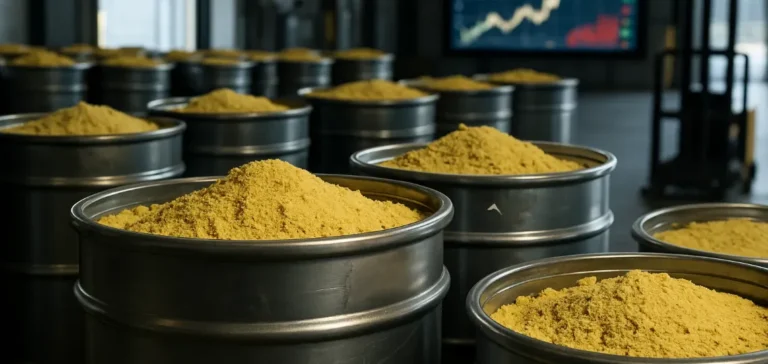The spot price for uranium oxide (U3O8) surged nearly 9% on June 16, driven by a major fundraising effort by a fund specialized in the physical acquisition of this strategic commodity. The rapid price increase directly reflects investor expectations surrounding this significant financial operation, led by a prominent Canadian financial institution.
Major fundraising triggers trading activity
This investment fund, recognised as one of the world’s largest physical holders of uranium, raised around $100 million through a share issue fully subscribed by a major Canadian investment bank. The explicit objective of this capital increase is the additional acquisition of uranium stocks, directly influencing demand on the spot market. This financial operation, precisely valued at $100.1 million, will enable significant additional purchases of U3O8.
Several important transactions immediately followed the announcement. An intermediary reported that four transactions totaling 400,000 pounds of uranium were concluded at progressively higher prices during early trading hours in the US markets. Among these deals, a notable delivery will be made to France, with 100,000 pounds scheduled for delivery in August at a set price of $76.25 per pound.
A tight market context driving fluctuations
Alongside the momentum generated by the fund raise, another situation has amplified upward movements: an Australian uranium mining company’s contractual cancellation of future deliveries. The company announced it had agreed with international energy companies to cancel three contracts totaling nearly two million pounds of uranium scheduled over eight years. Delays in commissioning a central processing plant in the United States explain these significant contractual adjustments.
These unexpected changes to delivery schedules heighten perceived future scarcity, indirectly contributing to the observed price increase. The volumes involved, coupled with expected production decreases, intensify short-term pressures on the global supply available.
Unprecedented fluctuations since December 2024
The current price of $75.45 per pound is the highest point reached since December 2024. Uranium price levels have fluctuated between $63 and $71.50 per pound since last January, illustrating notable volatility in recent months. This instability reflects frequent and pronounced market reactions to news regarding inventories and significant transactions by key global nuclear sector players.
International markets thus remain attentive to major financial decisions and significant operational and contractual changes directly affecting the pricing of critical raw materials for nuclear energy. This combination of financial and operational factors creates an environment conducive to closely monitoring future developments.






















